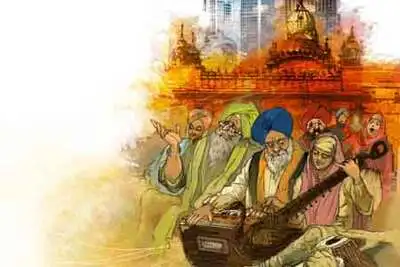
BIHANGAM, from Sanskrit vihang which means a bird, is a term applied to wandering ascetics who lead a life of complete detachment. A Biharigam is a celebate who lives in poverty renouncing all worldly ties and follows the path of holiness. In the Hindu tradition, he, abjuring religious dogma, worships Siva, Rama and other incarnations. Bihangams, among Sikhs, are likewise holy men who do not marry and who shun worldly ambition and temptation. The object of their devotion is the One Supreme Being.
BIKRAM SINGH, RAJA (1842-1898). born in January 1842, succeeded his father, Wazir Singh, to the throne of Faridkot state in 1874. A dominant figure in Faridkot history, Raja Bikram Singh modernized the state administration. He employed retired British officials of experience and in 1875 set up offices and courts on the British model and adopted British law. Schools and charitable hospitals were opened and dharamsalas and rest houses for travellers constructed. Sadavarats or free kitchens were established at Faridkot, Thanesar and Amritsar. Sanskrit pathshalas, or schools were started where free food was served to the students.
BIR SINGH, BABA (1768-1844), soldier become religious preacher and saint, was born in July 1768 at the village of Gaggobua, in Amritsar district of the Punjab, the son of Seva Singh and Dharam Kaur. After the death of his father in one of the campaigns against the Afghan rulers of Multan, Bir Singh joined the Sikh army. He participated in Maharaja Ranjit Singh *s campaigns for the capture of Kashmir and Peshawar. After several years of active service, he secured his dismissal from the army as he came under the influence of Baba Bhag Singh, a Sikh saint belonging to Kuri, in Rawalpindi district.









